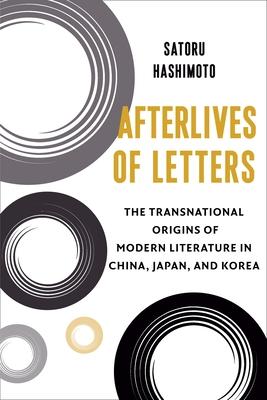When East Asia opened itself to the world in the nineteenth century, Chinese, Japanese, and Korean intellectuals had shared notions of literature because of the centuries-long cultural exchanges in the region. As modernization profoundly destabilized cultural norms, they ventured to create new literature for the new era.
Satoru Hashimoto offers a novel way of understanding the origins of modern literature in a transregional context, drawing on Chinese-, Japanese-, and Korean-language texts in both classical and vernacular forms. He argues that modern literature came into being in East Asia through writerly attempts at reconstructing the present's historical relationship to the past across the cultural transformations caused by modernization. Hashimoto examines writers' anachronistic engagement with past cultures deemed obsolete or antithetical to new systems of values, showing that this transnational process was integral to the emergence of modern literature. A groundbreaking cross-cultural excavation of the origins of modern literature in East Asia featuring remarkable linguistic scope, Afterlives of Letters bridges Asian studies and comparative literature and delivers a remapping of world literature.
Book
Afterlives of Letters: The Transnational Origins of Modern Literature in China, Japan, and Korea
(Write a Review)
$38.89
When East Asia opened itself to the world in the nineteenth century, Chinese, Japanese, and Korean intellectuals had shared notions of literature because of the centuries-long cultural exchanges in the region. As modernization profoundly destabilized cultural norms, they ventured to create new literature for the new era.
Satoru Hashimoto offers a novel way of understanding the origins of modern literature in a transregional context, drawing on Chinese-, Japanese-, and Korean-language texts in both classical and vernacular forms. He argues that modern literature came into being in East Asia through writerly attempts at reconstructing the present's historical relationship to the past across the cultural transformations caused by modernization. Hashimoto examines writers' anachronistic engagement with past cultures deemed obsolete or antithetical to new systems of values, showing that this transnational process was integral to the emergence of modern literature. A groundbreaking cross-cultural excavation of the origins of modern literature in East Asia featuring remarkable linguistic scope, Afterlives of Letters bridges Asian studies and comparative literature and delivers a remapping of world literature.Paperback
$38.89